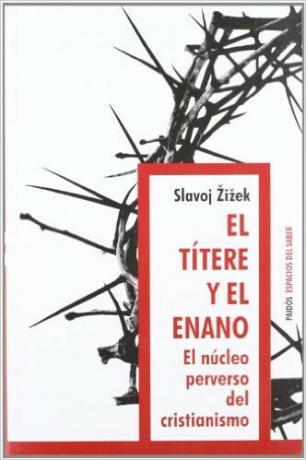Top 10 books by Slavoj Žižek
The Slovenian philosopher Slavoj Žižek is considered by many to be the most important European philosopher. from the actuality.
His way of thinking, which mixes Marxism with the ideas of Jacques Lacan, is a sharp scalpel with which on the pages of Žižek's books he dissects both the themes of currently more related to geopolitics as the great social phenomena that are setting the pace of the history.
The refugee crisis in the Middle East, the rise of far-right movements, the emergence of forces demanding greater political participation for the popular classes and the US invasions in other countries are analyzed by the Slovenian as part of a historical dynamic linked to the cyclical problems that appear in capitalism and, like Noam Chomsky, this philosopher believes that large oligopolies are strong enough to influence our thought schemes.
- We recommend you: "20 phrases by Slavoj Žižek that will make you think"
Books by Slavoj Žižek to understand his philosophy
The work of Slavoj Žižek is especially interesting for those people who want to understand the role that our ideology has in our way of thinking, acting and relate, since, for this philosopher, even the person most convinced of being apolitical clings to a political ideology without being aware of it by not questioning it in a way occasional.
let's see what they are the ten most relevant books by Slavoj Zizek.
1. Welcome to the desert of reality
In this book, Žižek looks at the post-9/11 world to question some of the "big truths" on which Western democracies are based and their diagnosis of the world's problems. Some of the totems against which he charges in these pages are the discourse of the war against terrorism that has prevailed for years in the United States. United or the supposed privileged position from which we are able to learn about the problems of non-Western countries from democracies developed.
- If you are interested in the book, you can find more information in this link.

2. The year we dangerously dream
As in other books by Slavoj Žižek, here we talk about social movements and revolutions. However, here we are talking about a period in which these gained special importance to the point of changing the way of thinking of many people: the year 2011, when protest movements such as 15-M, Occupy Wall Street, and when the so-called "Arab Springs" won force. The philosopher analyzes the way in which these small cultural and political revolutions appeared and ended up mutating into less short-term initiatives.
- To read more about the book, Click on this link.

3. Enjoy your symptom! Lacan in and out of Hollywood
In this book Slavoj Žižek shows the aspect of him most related to Lacanian psychoanalysis. With the large doses of humor and provocative spirit that characterize him, the philosopher talks about cinema, psychoanalysis and the ways in which our thinking articulates the perception of reality.
- If you are interested in the book, please click here.
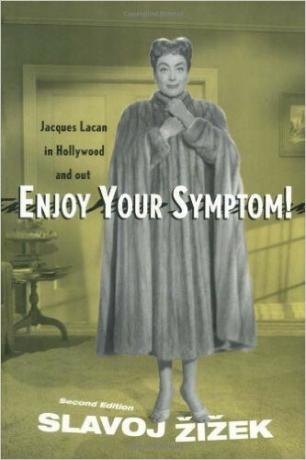
4. The new class struggle
The refugee crisis is tackled head on by this philosopher, who dedicates the book to emphasizing the need to solve the problem at its root. Limiting yourself to managing the collection of refugees without seeing further in the reading of the situation means losing two wars: embracing the discourse of the xenophobic extreme right and, on the other hand, to legitimize the forms of military intervention in countries outside the State of Welfare.
- To read more about this work, Click here.

5. repeat lenin
In the pages of this book, the Slovenian author describes the state of progressive movements and the way in which they depend on ambiguous principles that are easy to manipulate from outside. The philosopher looks at the figure of Lenin to rescue principles of elaboration of discourse and political argumentation.
- If you are interested in the book, click on this link.
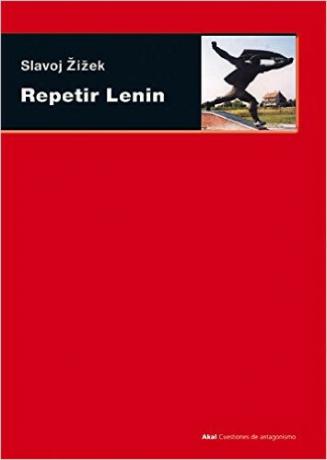
6. First as a tragedy, then as a farce
In this book Žižek starts from his Marxist perspective to explain how liberalism, as an ideology, has collapsed, being unable to explain the crises experienced throughout the 20th century, the way in which the property system serves to impose policies above the will of the people and how, under formal freedom, the most inequalities can be perpetuated and increased flagrant.
- In this page You will find more information about this book.

7. How to read Lacan
One of Žižek's best-known books, although its title is somewhat misleading; more than being a guide on how to interpret the writings and seminars of the French psychoanalyst, it is a way of understanding the way in which Zizek gives birth to Lacanian thought in his analysis of reality and art.
- To read more about this book access this page.
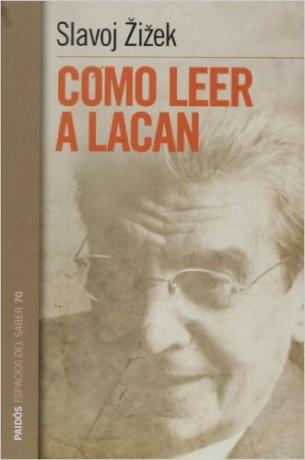
8. In defense of intolerance
Žižek dedicates the pages of this book to criticizing the depoliticization of the economy and moral relativism which for the philosopher does nothing more than feed a system of domination based on neoliberalism and which, however, is assumed by left-wing movements.
- Are you interested in this book? Here there is more information about him.

9. The sublime object of ideology
One of Žižek's books that delve deeper into this author's philosophy. In The sublime object of ideology, this philosopher criticizes ideas deeply rooted in postmodern philosophy and in the relativism to which it is associated through psychoanalytic theory.
- To read more about this work, do click here.
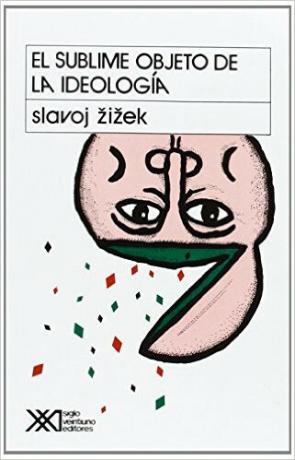
10. The puppet and the dwarf: the perverse core of Christianity
In this work Žižek discusses the religious phenomenon, focusing on the Judeo-Christian tradition and recent forms of New Age spirituality. Starting from an analysis very focused on the political implications of religious beliefs, it points out the way in which religion is explained through Lacanian psychoanalytic ideas.
- If you are interested in the book, you can know more about it here.
